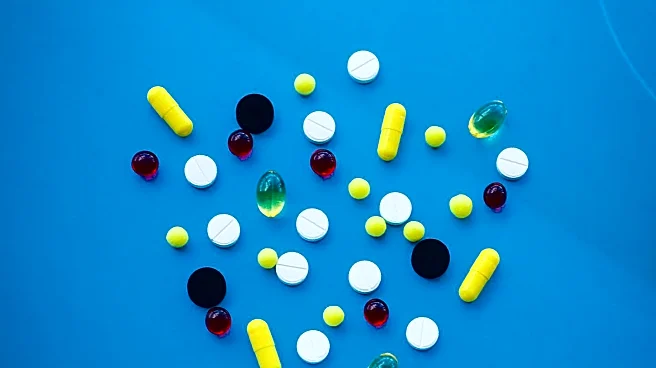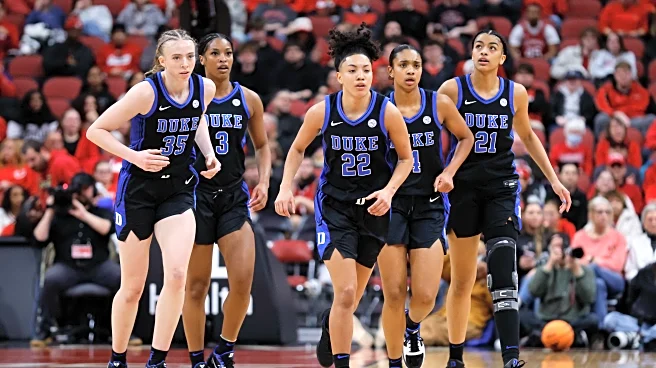What is the story about?
What's Happening?
The use of GLP-1 drugs, such as Ozempic and Mounjaro, for weight loss is rapidly increasing, with the market projected to reach $156.71 billion by the end of the decade. However, these drugs may affect gut health by reducing appetite and potentially lowering fiber intake, which is crucial for a healthy gut microbiome. Users report fewer cravings for processed foods, which can benefit gut health, but the long-term effects of these drugs on the gut microbiome remain largely unknown. Food brands are encouraged to support gut health with clean label, fiber-rich options.
Why It's Important?
The intersection of GLP-1 drugs and gut health presents both challenges and opportunities for the food and beverage industry. As consumers seek weight loss solutions, the demand for products that support gut health is likely to grow. This trend calls for innovation in creating nutrient-dense, fiber-rich foods that cater to the needs of GLP-1 users. Understanding the impact of these drugs on the gut microbiome is crucial for developing effective dietary strategies and addressing potential health risks associated with nutrient deficiencies.
What's Next?
Research into the relationship between GLP-1 drugs and the gut microbiome is ongoing, with potential implications for dietary recommendations and product development. Food and beverage companies have the opportunity to lead in this space by offering products that align with the growing focus on digestive wellness. As the market evolves, collaboration between healthcare professionals and the food industry will be essential to ensure that consumers receive accurate information and effective solutions.

















